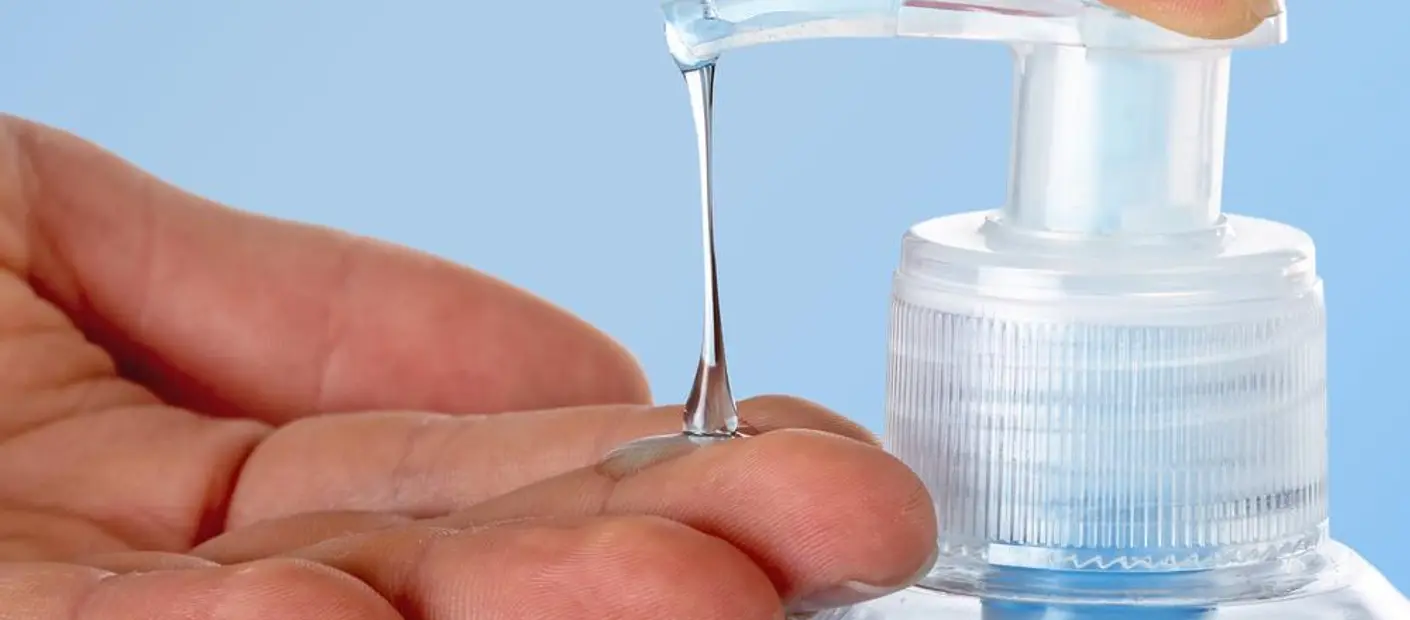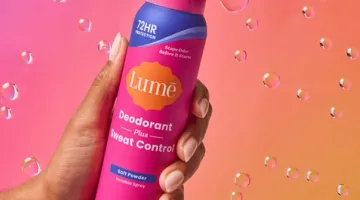
Are Antibacterial Soaps The Best Way To Protect Ourselves From Germs?
by Sarah Thomas
Germs Are Bad. Shouldn’t We Kill Them All?
Germs are bad– we know this. We are exposed to a shocking number of germs on a daily basis. A shocking number. Anyone who has spent any time around children and pets is acutely aware of just how germy the world can be.
And your cell phone? It’s ten times more germy than your average toilet seat.
So the idea of using antibacterial soap to reduce our chances of getting sick and spreading germs seems like the best idea ever, especially in the midst of an international public health concern like the coronavirus.
Capitalizing on the idea that bacteria is bad and the more we can avoid germs the better, manufacturers gave us antibacterial soaps for use at home. Antibacterial everything exploded in the marketplace in the 1990s and became a household staple.
What makes soap antibacterial? The use of chemicals that are known as bacteria killers. Washing with plain soap and water will rinse dirt and germs off your skin and down the drain. Washing with antibacterial soap will kill germs and rinse them down the drain. (More about the drain thing later.)
Now, it is also common to see antimicrobial soap. What is the difference between antibacterial and antimicrobial soap? The terms are often used interchangeably, but there is a distinction. The primary difference between antibacterial and antimicrobial soaps is that antibacterial soap kills bacteria, and antimicrobial soap kills bacteria, and fungi, mold, and mildew.
Science vs Marketing
After a few years of the antibacterial craze, some started questioning the idea that consumer use of antibacterial soaps protects us better than washing with plain soap and water, and the FDA got involved.
When pressed by the FDA for evidence that certain chemicals in antibacterial soaps made a difference in long term health effects, manufacturers came up empty-handed. And here’s why:
There is no evidence that washing with antibacterial or antimicrobial soap reduces your risks for illness or infection.
So why is the market still flooded with antibacterial soaps and all kinds of products? Because they sell.
Aside from the fact that antibacterial soap doesn't work any better than plain soap, there is some evidence that chemicals in antibacterial soap could have some negative effects on your health and on the environment.
In addition, our understanding continues to grow concerning the role of “good” bacteria and the need for balanced flora on our skin and in our gut. Chemical antibacterial agents kill ALL bacteria - good and bad.
With all the fear that can be generated by viral outbreaks like the coronavirus, too, it’s nice to have some clarification about what is truly necessary to protect ourselves from illness.
If you do use antibacterial soap in your home, you might want to reconsider.
Ban on Triclosan, Triclocarban, and 17 Other Chemicals
Two chemicals that were banned by the FDA in 2016 for use in consumer hand soaps are triclosan and triclocarban. They are still allowed in alcohol-based hand sanitizers, clinical settings, and many other consumer products that are not regulated by the FDA (including toothpaste).
Chemicals that are now being used in consumer antibacterial soaps include benzalkonium chloride, benzethonium chloride and chloroxylenol (PCMX). These haven’t been in use long enough for us to have much data on their impact, so this blog addresses the problems that have arisen as a result of antibacterials so far.
Resistance
“Strike me down, and I will become more powerful than you could possibly imagine.” —Obi-Wan Kenobi, Star Wars IV: A New Hope
What do microorganisms and Obi-Wan have in common? They are both incredibly adaptable and capable of responding to challenges.
In fact, challenges seem to make microorganisms even stronger. With the ability to divide every twenty minutes under the right conditions, you could say they are a “force” to be reckoned with.
The number of chemicals used in consumer antibacterial soaps aren’t really strong enough to eliminate more germs than washing with soap but are just strong enough to affect microorganisms and get them excited about rebellion and morphing into something invincible called superbugs. These are strains of bacteria that don’t respond to multiple antibiotics.
Overuse of antibacterial products can also reduce the population of healthy bacteria on our skin. This can make antibiotics less effective in the fight against bacteria, especially superbugs.
A study published in the Journal of Antimicrobial Chemotherapy gives a possible explanation for how antibiotic resistance can occur through “cross-resistance.” They found that when bacteria were exposed to one antibacterial agent (quinolones) and developed resistance, they also developed resistance to another antibacterial agent (triclosan) even when they did not come in contact with it.
What becomes troubling is the idea that we could potentially return to a time in which we lose our entire line of defense against infection.
But that’s not all.
Environmental issues
Bacteria-killing chemicals are only on your skin for a moment, and then you wash them down the drain. Is that the end of them? Nope. That’s just the beginning of the life cycle.
Where does the water go after it leaves your drain? It goes to a water treatment plant and is treated before being released back into the environment. Most of the chemicals in water are removed in this process, but triclosan and triclocarban are exceptionally strong and adaptable fighters!
After wastewater is treated and solids are separated out, what’s left is sludge. This sludge is often used to fertilize crops grown for food. While this seems a bit unsavory, it is an effective use of waste.
But what happens when chemicals like triclocarban are strong enough to survive this process and end up in concentrated form, as fertilizer for food?
In one study conducted on triclocarban’s stamina, 75% survived the treatment process.
“The observed persistence of triclocarban is remarkable,” said lead author, Jochen Heidler, a Ph.D. candidate in the Bloomberg School’s Department of Environmental Health Sciences. “In the plant, the chemical contained in sludge underwent biological treatment for an average period of almost three weeks, yet very little degradation took place.”
In 2016, a U.S. Geological Survey found the antibacterial triclosan in nearly 58% of freshwater streams. This puts the balance of an entire ecosystem at risk, exposes animals who drink from streams, and exposes crops that are watered by the streams.
Triclosan And Triclocarban Aren’t Ideal for Our Bodies or Our Environment
While it is not known exactly how harmful or damaging some of the effects of these two chemicals are, there are some facts that should not be ignored.
Triclosan and/or Triclocarban
- Kill bacteria indiscriminately in soil, good and bad.
- Decrease the diversity of bacteria in the soil.
- Have a significant presence in our freshwater supply.
- Make their way into our food through water and soil.
- Kill algae and disrupt the bacterial balance for water life.
- Disrupt hormones in animals and cause reproductive problems.
- Affect the good and bad bacteria on our skin and in our gut.
- Show up in the urine of nearly 75% of the people tested in a 2004 survey.
It probably goes without saying that our health relies heavily on the fact that those who work in the medical and food service industries use safe practices and whatever means necessary to protect us from contamination. This is why the FDA did not ban the use of triclosan and triclocarban in those settings.
But it may be in our best interest to limit household and commercial use of antibacterial and antimicrobial soaps where it’s possible.
Regular Soap Works Just Fine, Without All the Bad Press
“Following simple handwashing practices is one of the most effective ways to prevent the spread of many types of infection and illness at home, at school and elsewhere,” says Theresa M. Michele, MD, of the FDA’s Division of Nonprescription Drug Products. “We can’t advise this enough. It’s simple, and it works.”
How you wash your hands is actually more important than what kind of soap you use. The friction of rubbing your hands together is the key part that removes germs. Use warm water and soap, and rub those hands for as long as it takes you to sing your ABC’s, or the "Happy Birthday" song twice (30 seconds).
There was a time when it was difficult to find a soap that was NOT antibacterial, but there is a growing trend to return to plain old soap.
As Theresa at the FDA says, “It’s simple, and it works”.
As we say, Lume’s got you covered, and a high quality bar of soap is only a click away.
Lume Triple Milled Soap does not contain chemical antibacterial agents or synthetics like sodium lauryl sulfate, parabens, phthalates, or dyes.
Chemicals in soap meant to kill bacteria or increase lather are not pH-balanced for your skin and will quickly strip your skin’s protective acid mantle. This can leave your skin dry and unprotected from pathogens.
Roll a luxurious bar of Lume Triple Milled Soap in your hands, enjoy the rich, creamy lather while you wash away dirt and germs. You deserve it.
Did you Lume today? Check out all the doctor developed, skin loving products in the Lume shop like our Lume Whole Body Deodorant and Deodorant Wipes, and opt right out of body odor.
Did you Lume today? Check out all the doctor-developed, skin-safe, and natural products in the Lume shop like our Deodorant and Deodorant Wipes, and let odor be optional.
Categories
Recent Articles
- Meet Our New Clinical Strength Antiperspirant Spray
2026-02-05T21:00:00.000Z
- The Art of Scent Layering With Lume
2025-09-24T20:51:28.831Z
- Your Pits Deserve Better: Why Lume is The Best Deodorant For Underarms
2025-08-08T14:01:16.861Z
- Bacteria On Our Skin: Friend Or Foe?
2025-07-17T19:53:50.363Z
- Why Lume's Premium Ingredients Deliver Quality & Real Value
2025-06-20T15:57:17.551Z









